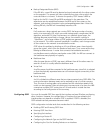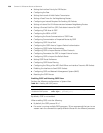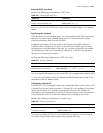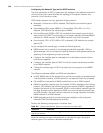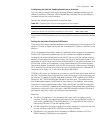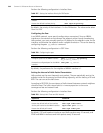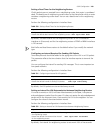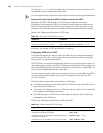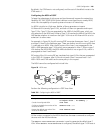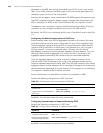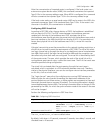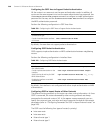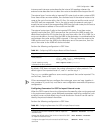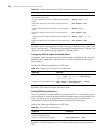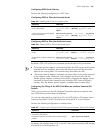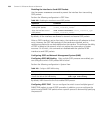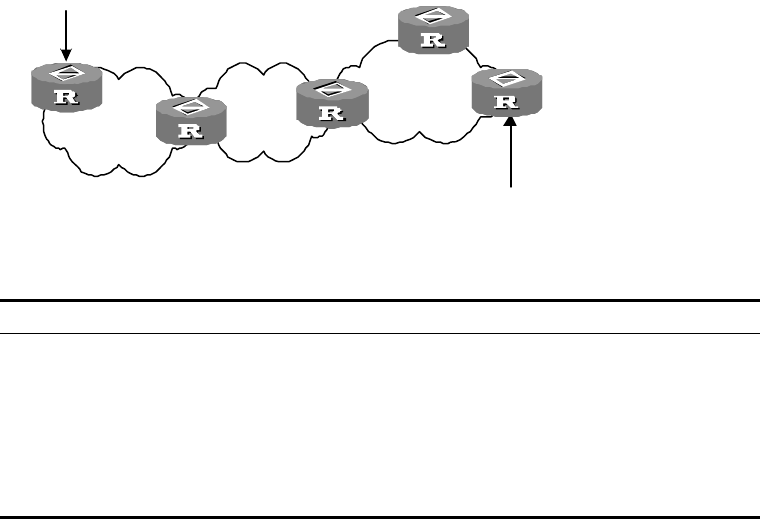
OSPF Configuration 245
By default, the STUB area is not configured, and the cost of the default route to the
STUB area is 1.
Configuring the NSSA of OSPF
To keep the advantages of stub areas and simultaneously improve the networking
flexibility, RFC1587 (OSPF NSSA Option) defines a new type of area, namely NSSA,
which has the capability of importing external routes in a limited way.
An NSSA is similar to a Stub area. Neither of them generates or imports
AS-External-LSA (namely Type-5 LSA), and both of them can generate and import
Type-7 LSAs. Type-7 LSAs are generated by the ASBR of the NSSA area, which can
only advertise in the NSSA area. When a Type-7 LSA reaches the ABR of the NSSA, the
ABR decides whether to transform the Type-7 LSA into an AS-External-LSA so as to
advertise it to other areas.
For example, in Figure 56, the AS running OSPF comprises three areas: Area 1, Area 2
and Area 0. Area 0 is the backbone area. There are another two ASs running RIP. Area
1 is defined as an NSSA. After the RIP routes of the Area 1 are propagated to the
NSSA, ASBR generates type-7 LSAs which are propagated in Area 1. When a type-7
LSA reaches the NSSA ABR, the NSSA ABR transforms it into a type-5 LSA, which is
propagated to Area 0 and Area 2.
RIP routes of the AS running RIP are translated into type-5 LSAs that are propagated
in the OSPF AS. However, type-5 LSAs do not reach Area 1 because Area 1 is an
NSSA. NSSA and STUB areas use the same policy in this respect.
The NSSA cannot be configured with virtual links.
Figure 56 NSSA area
Perform the following configuration in OSPF Area View.
All the routers connected to the NSSA should use the nssa command to configure
the area with the NSSA attributes.
The
default-route-advertise parameter is used to generate the default type-7
LSAs. When
default-route-advertise is configured, the default type-7 LSA route is
Table 235 Configuring the NSSA of OSPF
Operation Command
Configure an area to be the NSSA area nssa [ default-route-advertise |
no-import-route | no-summary ]*
Cancel the configured NSSA undo nssa
Configure the default cost value of the
route to the NSSA
default-cost cost
Restore the default cost value of the
route to the NSSA area
undo default-cost
area 0
area 1
NSSA
area 2
RIP
RIP
NSSA
ASBR
NSSA
ABR
area 0
area 1
NSSA
area 2
RIP
RIP
NSSA
ASBR
NSSA
ABR



